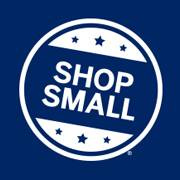A new frontier is opening in American education, with thousands and thousands of educators launching new and unique schools: classical schools, self-directed learning, Montessori, cooperatives, hybrid schools, and many more approaches than I have space to define. This entrepreneurial spirit is a positive trend for education and the teaching profession, and it deserves the sort of bipartisan praise we see elsewhere in society.
One approach has seemed to stand out in the public’s imagination: the microschool. These modern-day spins on the one-room schoolhouse point back to a well-known past, while also eliciting an embarrassingly obvious notion: "You mean we could just have a couple of great teachers, a small and tight-knit community, and rid ourselves of the bureaucracy, busywork, and bullying that make up a significant amount of the school day?"
With a growing share of the nation's students, this slice of the education sector is increasingly being covered by national outlets like the New York Times, Washington Post, and Wall Street Journal. As those outlets note, there are likely millions more students being educated in microschools and similar environments, particularly since the pandemic.
With such growth, it's not surprising that there are so many top politicians jockeying to be seen as the most pro-microschool:
“[Microschools] are the engines of our economy and the hearts of our communities. We learned today that my first two years in office have been the two greatest years for new [education entrepreneurship] on record, with [thousands of new schools and learning environments] created.”
Another touted his administration's focus on championing education entrepreneurship, "giving more [educators] the opportunity to start, scale, and succeed in [schools] of their own."
Another noted that microschool founders are the heart of education: "These entrepreneurial pioneers embody the spirit of possibility, the tireless work ethic, and the simple hope for something better that lies at the heart of the American ideal.”
You may have already figured out these comments are not about microschools. They're comments about small businesses, from Presidents Biden, Trump, and Obama, respectfully. Conservative or liberal, you'll have a hard time finding a politician who doesn't want to be seen as pro-small business. For good reason. As this article notes:
Small businesses provide opportunities for entrepreneurs, jobs for neighbors and gathering places for communities. They're rooted in the landscape where they grow, and they give back vitality and sustenance. Although running a small business involves taking greater risks than working for a large, established company, the rewards are both quantitative and qualitative, including broad-based prosperity and a web of symbiotic relationships.
While these themes equally apply to launching a microschool, this is not the vibe afforded to microschools in popular media or politics. Big wigs care a lot about small businesses, except small businesses that educate kids.
And that's a damn shame. Entrepreneurial educators are creating options with the same determination and passion as any small business owner. They’re building education options when the students they care about are struggling to succeed. They’re building when they know a better way to teach but are bound by the limits of the traditional system. They’re building when they’re frustrated that traditional school has overlooked children in favor of a test prep mania.
It’s not hard to imagine a future where education entrepreneurs like these garner as much admiration as small business owners.
For all the talk of teacher burnout, the need to keep teachers in the profession, and how they often have to leave the classroom to take administrative jobs to advance -- microschools are one clear outlet that provides entrepreneurial educators the ability to practice their craft on their own terms.
No one talks about the need to be treated like professionals as much as teachers unions, who also scoff at the concept of such professionals opening their own practices. At a recent address to her union delegates, NEA president Becky Pringle committed to "create and sustain a professional environment where all educators have the professional authority and collaborative autonomy to make teaching and learning decisions for themselves and their students."
This is the same union that opposes microschools. The NEA commissioned opposition research against a popular Arizona network of microschools during the pandemic, which we only know about because it was leaked to the Wall Street Journal. As EdChoice’s Mike McShane noted, the opposition report “admits that micro-schools are popular, that kids learn well in them, that they solve some of the problems that homeschoolers face, and that some of Arizona’s school choice programs ‘alleviate some equity issues’ as lower-income families can participate.” But that doesn’t prevent the NEA from placing these models in their crosshairs, commissioning private investigators to follow the microschool founder, take photos of his home, and provide his home address to the union.
Can you think of another profession where the concept of starting your own practice is met with such opposition from the membership organization proclaiming to support you? Would the American Medical Association denigrate private practice while pushing doctors to work large hospitals?
If you care about the teaching profession, entrepreneurship, and a more dynamic education market, you should care about microschool founders.
More than a decade ago, Small Business Saturday started as a campaign to help small businesses gain exposure and encourage shoppers to visit their small businesses during the holiday shopping season. We need a Microschool Monday to showcase these options -- not only to families, but also to educators who have the entrepreneurial itch with little visibility into how to make it happen.
Who wants to help make that happen?



Agreed! But not just for microschools Adam... for ALL out of system edupreneurs.